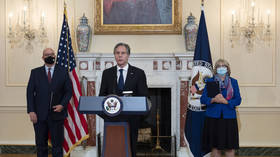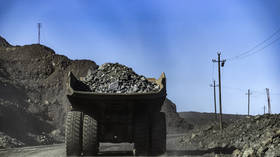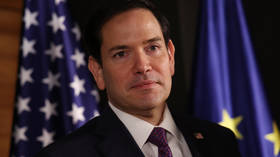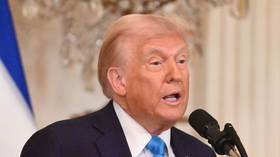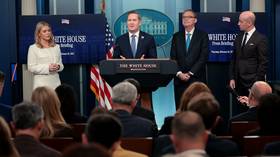‘Havana syndrome’ has been debunked, but will lessons be learned?
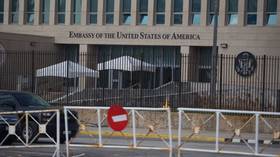
For seven years, US diplomats worldwide have succumbed to mysterious illnesses and abnormal acoustic sensations dubbed “Havana syndrome,” after the first “case” was detected in the Cuban capital in 2016. These mystery illnesses have racked up burdensome medical bills for many and pushed some into early retirement.
Investigators initially pinned these incidents on a suspected high-tech energy weapon, possibly developed by Russia, until an exclusive Washington Post report was released last week. According to the report, which cites anonymous officials familiar with conclusions found by several agencies, the “syndrome” was not caused by an energy weapon and one agency nixed the idea completely that a foreign adversary was behind it. Reportedly, none of the agencies disagreed with the latter conclusion. Investigations into what exactly happened are still ongoing.
However, for years the US media pointed the finger at Russia through “scoops” dropped by anonymous intelligence officials. For instance, Politico reported in 2021 that American spy agencies were lasering in on Russia’s military intelligence unit, GRU. These officials reportedly debriefed members of Congress on the matter. Likewise, that same year the New Yorker posed the tantalizing question: “Are U.S. Officials Under Silent Attack?” And, of course, well before this, the likes of CNN and MSNBC were already speculating about a conspiracy on their broadcasts and, as always, blaming the Russians.
The debunking itself comes from a paper that has reported speculative information from “anonymous” intelligence officials in the past. However, it references a number of reports – things that exist – within US intelligence agencies, which lends it much more substance and credibility.
It’s hard to speculate on what might have been behind the “Havana syndrome” incidents but what’s clear is that US officials jumped the gun in blaming Russia. If we turn the clock back seven years, we might recall that this was one of the spikes in anti-Russia hysteria in the US. Report after report came out suggesting that Russia “hacked” the US presidential election that year in favor of Donald Trump. Then the goal posts kept shifting, first to how Russia “interfered” in the election, and then to how Russia “influenced” the election.
Each of these reports was debunked and some journalists were even sacked or forced to resign over “scoops” that had not been properly fact-checked. For example, one Washington Post reporter got a scoop from officials that Russia hacked into the state of Vermont’s energy grid, a claim that was immediately debunked. Another CNN investigation, alleging that Russia had a slush fund in place for Trump-tied officials, led to three journalists, including one executive editor, resigning.
Russia’s vindication regarding the mystery illnesses of US diplomats is a premier case study in unethical speculation by federal officials exacerbated by sloppy journalism. Going back to when “Havana syndrome” first appeared, we will also remember that it was not long after the 2014 Western-backed coup in Ukraine, which nearly sparked a direct conflict between Russia and NATO, led to the Russian annexation of Crimea and spurred events leading to the current Ukraine crisis.
US officials and their media stenographers were trying hard to drive public opinion against Russia by claiming Moscow was directly undermining America’s democracy and covertly attacking our diplomats around the world. Of course, it was all a bunch of lies, as history has revealed. There needn’t be a foreign adversary to explain the health issues of US diplomats. Perhaps the explanation is simpler, something like travelers’ sickness, which many people experience. One thing is certain, there was never any actual evidence that Russia was behind these weird illnesses – only speculation.
We’re now seeing this in action again after a Chinese balloon was spotted over the continental United States. The US government shot down the airship, speculating that it was part of a surveillance operation. China maintains that it was simply a weather monitoring balloon that had veered off course.
In any case, the US is reportedly releasing an investigation on this matter. After the latest revelation about the “Havana syndrome”, I fully anticipate the report will show that, in fact, it was a civilian weather balloon all along and not a surveillance op. Releasing defamatory ‘scoops’ about adversarial countries, not backed by evidence, has been the modus operandi for US officials and media for a while now.
However, I hope these intelligence reports dug up by the Washington Post can be a point of reflection for the media. Hopefully, they will stop embarrassing themselves by uncritically broadcasting the officials’ finger-pointing. The American people are sick of the lies, sick of the transparently false claims roundly reported in the media and sick of not having a media apparatus that actually discusses issues relevant to their lives.
The statements, views and opinions expressed in this column are solely those of the author and do not necessarily represent those of RT.

